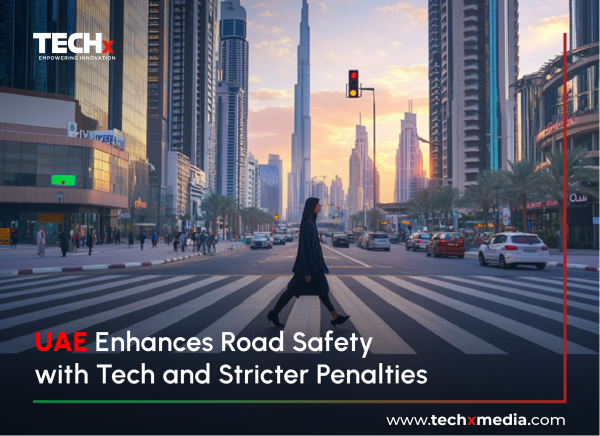
In a significant legislative update, the UAE Government has issued a new federal decree-law on traffic regulation, aimed at aligning with the rapid advancements in global transportation technology. This decree-law reflects the UAE’s commitment to enhancing its legal and regulatory framework, focusing particularly on self-driving vehicles, electric cars, and personal mobility devices.
The decree-law introduces modern updates to vehicle classifications and encourages the adoption of advanced transportation technologies, leveraging the UAE’s extensive road infrastructure. Among the new provisions, a cabinet resolution will specify requirements for the inspection, licensing, and renewal of self-driving vehicles and outline protocols for testing new vehicle technologies.
Under the decree-law, the use of cutting-edge technology is emphasized for maintaining road safety, with provisions for issuing fines to violating vehicles or individuals. Licensing authorities will be required to develop smart platforms for managing licenses and permits, under the supervision of the Minister of Interior or relevant emirate authorities.
A new “Federal Traffic Council” will be established to oversee traffic regulations, with its formation and responsibilities set by a Cabinet resolution based on recommendations from the Minister of Interior.
New Road Usage and Safety Regulations
The decree-law also stipulates safety guidelines for both drivers and pedestrians. For instance, pedestrians are prohibited from crossing roads where speed limits exceed 80 km/h, and they may face civil or criminal liabilities for non-compliance. The law further prohibits roadside vehicle repairs or stopping on curbs, aiming to minimize potential hazards.
Revised Driving License Requirements
To promote safe driving practices, the decree-law sets the minimum age for a driving license at 17 years and introduces regulations for driving trainers. Trainers must ensure their trainees are road-ready and restrict training within populated areas unless the trainee can maintain control of the vehicle. Licensing authorities retain the power to suspend or revoke driving licenses if the holder is deemed unqualified or medically unfit.
Any modifications to a vehicle’s structure, body, engine, or color require licensing authority approval, and insurance companies are barred from limiting their liability for accidents, reinforcing comprehensive protection for accident victims.
Enforcement and Penalties for Violations
A Cabinet resolution will outline specific penalties for various violations, with deterrents established for severe offenses. Key penalties include imprisonment and fines starting from AED 20,000 for license plate misuse, AED 20,000 to AED 100,000 for driving under the influence of alcohol, and AED 30,000 to AED 200,000 for narcotics-related offenses. Driving on a suspended license incurs up to three months of imprisonment and a minimum AED 10,000 fine.
Further penalties apply for leaving an accident scene without reporting, negligent driving resulting in death, and crossing roads from undesignated locations if it leads to an accident, with fines reaching AED 10,000 for such offenses.
This updated traffic decree-law represents a robust step in enhancing road safety, enforcing stricter penalties, and embracing technological advancements in the UAE’s transportation ecosystem.